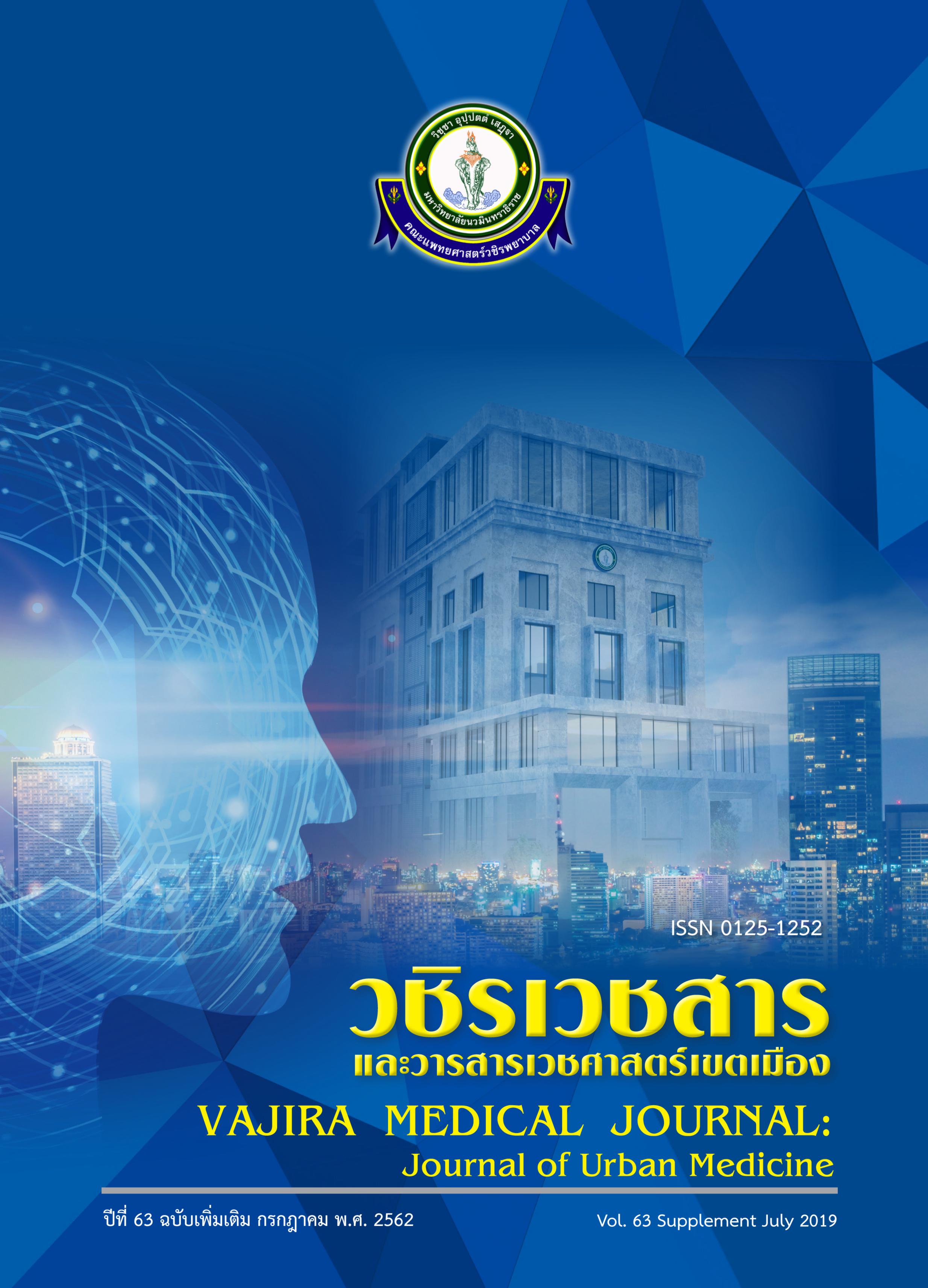The Survey of Thai Paramedics’ Recognition in Performing Advanced Procedures
Main Article Content
Abstract
Objective: 1. to define the knowledge of Thai paramedics in terms of recognizing the authorization in performing advanced procedures. 2. to define the common advanced procedures in real practice. 3. problems and solving methods in performing advanced procedures.
Study design: Cross-Sectional Survey
Methods: This study was a survey study of Thai paramedics who were certified by the Thai Paramedic Council. The 3 Experts validated and made reliability in the open-ended survey questions. The researchers emailed questionnaires to Thai paramedics by using www.surveymonkey.com
Results: The researchers emailed questionnaires to 191 Thai certified paramedics and received back 142 questionnaires (74.3%). Most of the participants were female 86 (60.6%). The majority of participants worked in tertiary care hospitals 86 (60.6%), and secondary care hospitals 35 (24.6%). Eighty-six (60.6%) participants recognized the importance of performing advanced procedures. The three most common advanced procedures were intradermal Injection (10.6%), pharmacological facilitation without paralysis (9.9%), and intraosseous injection (7.7%), respectively. The main problem in doing advanced procedures was lack of equipment 75 (52.8%) especially in secondary care hospitals (n=26, p=0.007).
Conclusion: Thai paramedics recognize very well the importance in performing advanced procedures. The three most common advanced procedures were intradermal Injection, pharmacological facilitation without paralysis and intraosseous injection, respectively. The secondary care hospitals lack medical equipments to perform advanced procedures. Physicians should prepare guidelines for ambulance and dispatch centers that paramedics can perform advanced procedures immediately.
Downloads
Article Details
References
2. Emergency Medical Act B.E. 2551. Emergency Medical Operation: Types and Authority levels and Powers and Duties and Limitations. Available at: http://www.niems.go.th. Retrieved February 25, 2018.
3. Sanders MJ., Lewis LM., Qick G., McKenna KD.Mosby’s Paramedic Textbook.4th ed.USA: Jones & Bartlett Learning, LLC, an Ascend Learning Company; 2012. p.65.


